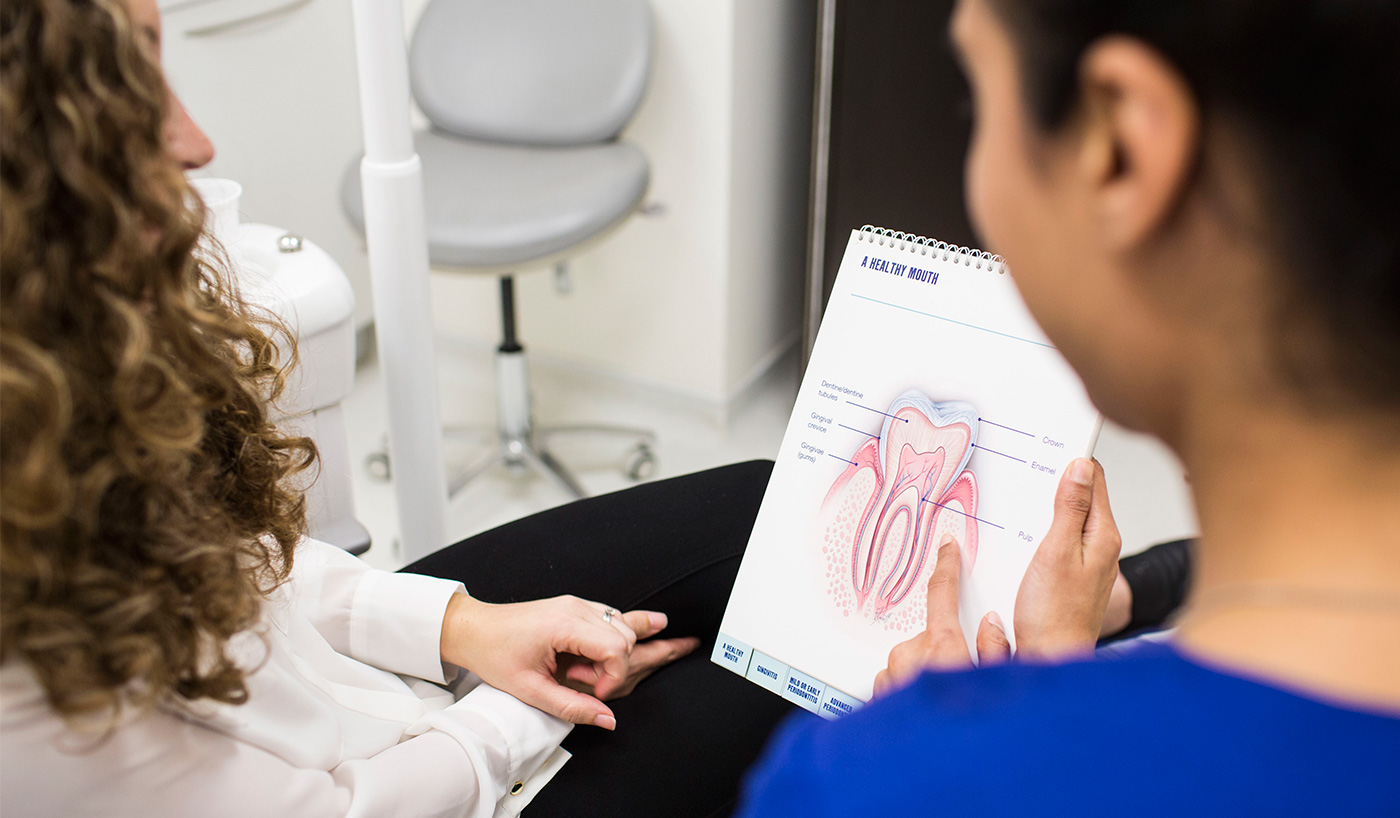A frenectomy is an oral surgical procedure performed to correct the unhealthy shape, size or position of the frenum muscle tissue which connects the tongue, lips and cheeks to the jaw bone. When the frenum is abnormally formed and positioned, such as along the gums or tongue, it may impact teeth alignment and restrict tongue and lip movement for communication.
Defining the Frenum
Frenum is the medical term used to describe the soft muscle connective tissue found in the mouth, digestive tract, external genitalia and brain.

Frenectomy Oral Surgery Procedures in Dentistry
Frenectomy surgery serves varied purposes in dentistry to restore frenum condition for healthy oral function. Typical dentistry treatments requiring a frenectomy include:
Dentures
Frenectomy surgery secures dentures for better retention if the frenum is the cause of loose fitting dentures. A prominent frenum dislodges dentures with lip movement. Frenectomy surgery reshapes and repositions the frenum to prevent denture pulling and shifting.
Tongue Clipping
The frenum tissue or lingual frenum is found under the tongue, and if attached too close to the tongue tip, may impede speech and impact healthy dental development. Sometimes referred to as being ‘tongue tied’, the condition may be identified early in children. A Lingual Frenectomy or ‘tongue clipping’ removes this frenum tissue from below the tongue for unrestricted tongue movement, proper dental development and normal speech.
Orthodontics
An abnormal oral frenum may be attached and extend above the gums, causing the gums to recede and irregular teeth spacing to develop. Commonly seen between the two top front teeth, a prominent frenum or labial frenum may be removed through labial frenectomy before orthodontic treatment such as Invisalign is used to return teeth spacing and alignment to normal.
Frenectomy Surgical Procedures
Prior to Frenectomy surgery the oral surgeon will explains the procedures involved, including risks, benefits and price. Patients may have their questions answered for understanding of frenectomy surgery before consenting to treatment.
Preparatory procedures include provision of local anaesthetic for pain-free surgery and Intravenous (IV) Sedation treatment where necessary, such as for dental phobia to provide the patient with greater relaxation during surgery.
Frenectomy procedures used to remove or alter the frenum may be with soft tissue laser or a dental scalpel. Laser frenectomy eliminates the need for stitches, reduces bleeding and allows for faster recovery. Frenectomy surgery duration is approximately half an hour and patients soon recover within a fortnight.
Patients usually recover from frenectomy surgery within an approximate period of two weeks. This depends on the patient’s health condition and healing rate.
The dentist may prescribe non-steroidal anti-inflammatory (NSAID) medication or advise patients to use over-the-counter NSAIDs, such as Ibuprofen. Rinsing the mouth with an antibacterial mouthwash is recommended to clean the treatment site gently and prevent infection. Salt water may be used as an alternative mouth rinse.
Careful cleaning around the frenum treatment site is advised. However, patients are encouraged to continue healthy oral hygiene such as teeth brushing and flossing.
If frenectomy surgery procedures are performed by dental scalpel, sutures should self-dissolve within a two-week period or may need to be removed by the dentist.
All surgical procedures have inherent risks such as bleeding, bruising, infection, nerve damage, swelling, scarring, pain and discomfort. Frenectomy surgery may include these risks. Oral Surgeons are qualified and experienced to reduce such risks.
In some cases, the frenum tissue may redevelop requiring repeated surgery. Repeated labial frenectomy is less common than repeated lingual frenectomy. Laser frenectomy requires no sutures and patients usually experience less bleeding and discomfort with quicker recovery time.
Tingling or numb sensations may be experienced at and around the treatment site should accidental nerve damage occur. Patients should immediately inform their oral surgeon or dentist.
While risks are posed by frenectomy surgery the benefits patients receive vastly enhance their quality of life. Having stable dentures reduces oral discomfort, allows for better chewing ability and facilitates normal communication.
‘Tongue tied’ conditions can affect an individual’s communication, how they express themselves and others’ perceptions. Lingual frenectomy enables individuals to experience better communication and life opportunities.
Frenectomy surgery corrects orthodontic conditions for improved bite function, nutritional choices, communication and facial expression. Patients experience enhanced oral and overall health from frenectomy surgery for better quality of life.
Frenectomy Surgery Information and Costs
We aim to make dental and cosmetic dentistry treatments affordable for our patients. We provide financing to help patients have treatment options and receive the treatment they need, such as frenectomy surgery. Patients are fully involved in their care plans and provided with all information in writing including costs.
We look forward to hearing from you and can book an appointment or consultation to assess your oral health needs.
